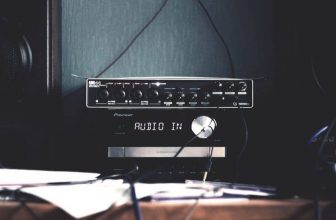How To Find And Improve Your Rap Voice
Rapping is an impressive art-form. Most mere mortals look at a guy spitting rhymes at 120 bpm and they can’t help but be impressed.
But that performance is just the last step in a long line of steps. Before the final rendition comes the creative stages, the practice and the promotion. Perhaps the most daunting step of all, especially for an uninitiated rapper, is finding your own voice and improving it.
This is obviously a highly individual process, because no two rapper’s voices are the same. Yet, there is some advice that is universal and can be applied to all situations.
Finding a voice that you are comfortable with and sounds genuine is one of the most important stages in becoming a successful rapper.
Without this underlying structure, all the witty punchlines and scathing rhymes will be useless, because they won’t sound sincere or meaningful to your audience.
That is why it is important not to overlook this process, and to spend enough time at the start of your career truly ‘finding’ your rap voice, and then crafting that to perfection.
In this comprehensive article we’ll detail a bunch of helpful hints and tricks for how to find and improve your rap voice.
Table of Contents
Most People Hate Their Voices At First
This is almost universally true in the world of rapping. The vast majority of people hate their rap voice when they first embark on this journey. They usually think they sound insincere and patently ridiculous. It’s important not to get discouraged at this stage.
Most people really dislike hearing their voice played back to them on tape, because that’s not how they hear themselves naturally. But remember, all the great rap artists have gone through this grueling process.
Many of the most successful rappers in the world actually still say that they hate their own voice, so don’t expect to ever become too comfortable with it!
Listen To A Lot Of Rap
Video: “Decade Defining Rap Songs Of The 2010s [2010 – 2019]”
It may sound slightly counter-intuitive, but one of the best ways to find your own voice is to actually listen to a lot of other people’s music. No one exists in a vacuum and we are all influenced in a million different ways, so this is not a blow to your creativity.
Specifically, you should try and listen out for the tone and pitch of their voice. Watch for how it lilts and flexes, often in time with the beat. The lyrics are not so important at this stage. Just get into the flow of the song, then try it yourself.
Don’t be afraid to add your own touches. You can be an individual and you don’t need to sound the same as the original artist. Repeating this process over and over, with as many different songs as possible, should bring you much closer to ‘finding’ your true rapper voice.
Doing this as an intentional and conscious exercise is one of the best first steps for how to find and improve your rap voice.
Exploration And Choice
The process of finding your rap voice has two major aspects; personal exploration and conscious decisions.
Personal Exploration
Personal exploration is the more free, creative and sub-conscious action. This is partly why we practice so much, and do so with varied music. It is vital to get to know the ranges of your voice, and experiment with all kinds of different effects.
At this stage don’t settle on anything. You need to try everything. That means trying different pitches, different flows, different tones, different moods. This should be like a musical buffet, where you mix and match a bit of everything.
Eventually, from this confusing cacophony of different rap techniques, you will be able to draw out a voice that is sincere, personal, and distinctly ‘you’. Try not to get too frustrated during this period of creative wandering.
Everything happens in its own time and even the best artists have had to find their way in the musical wilderness at first.
Conscious Decisions
The other important part of this process is the conscious decisions that you make as an artist. From listening to other rappers and doing a bit of reading, you should have discovered the language and terminology that is used to describe how rappers sound.
Now you need to use that language yourself and decide how you want your voice to sound. Do you want to be known for bold political stances and criticism of the elite?
Then you want to add elements of anger, outrage and shame to your voice. On the other hand, if you want to be known for comical phrases and witty remarks then you will probably want to adopt a softer, more whimsical tone and timbre.
Unlike the previous phase, these are fully conscious decisions that will have a big impact on your rap voice in the future. Of course, you don’t need to know exactly what kind of rap you want to write or confine yourself to just one genre, but it helps to give you some direction in your early career.
Improving Your Rap Voice
Video: “How To Improve Your Rap Voice In Under 9 Minutes (Tips + Examples)”
The acts of finding and improving your rap voice are not really two separate things. It is really one big, collaborative and iterative process. Once you have a voice that you are modestly happy with, you can apply some of the techniques listed below to try and improve and refine it.
But this may lead you back to the more explorative, creative phase and prompt you to change your style separately. As you become better and better, these techniques should become second nature to you, and will lead to you drastically improving as a rapper.
Emotional Dynamics
Music in general is all about emotion, and this is definitely true in the world of rap. It is important to sound emotionally invested in the lyrics you’re spitting, but at the same time maintain poise and control.
This can be a difficult balancing act for many people, and emotional dynamics definitely set great rappers apart from merely good rappers.
Lack Of Emotion
The most common fault for novice rappers is displaying a lack of emotion. Emotion is a requirement in rap, because otherwise you can just sound monotonous and boring.
If you sound like you are not emotionally impacted or invested in the song you are singing, then why would the audience be invested?
Emotions are contagious, and they are also the currency that rap is traded in. This means that if you show enthusiasm or anger, glee or outrage, then your audience will respond in kind. This helps you to build a bond with an audience, and makes them feel a connection to you, the rapper.
Injecting emotion into your rap can be hard at first. It is mainly done through the delivery of your rap, in the cadences and underlying tone. Practice is key. If you are finding it difficult to add emotion into the song then you may need to delve a little deeper into what the song is about.
Try and make it personal and relatable to your own experience, this should make it easier to be passionate and emotionally moved by the lyrics. Emotional delivery is needed to make your voice sound sincere and genuine. Without it you might as well be a high-tech robot spitting lyrics.
Too Much Emotion
If a lack of emotions is the number one problem for novice rappers, then too much emotions might be number two. Emotional control is key, and a surplus of emotions can actually be detrimental to your performance.
It is all very well being high-stung and heavily invested in your lyrics, but if this means that your delivery becomes disjointed, out of time or downright difficult to understand, then this means emotions have become a problem. Remember, sincerity is key.
This means that the audience have to find you credible and believe that the song is actually affecting you on a real level. So, don’t exaggerate to the extent that you lose credibility.
For example, if you are a young 18-year-old aspiring rapper, don’t become emotionally attached to lyrics talking about divorces and ex-lovers!
This is just not emotionally relevant to you. Also, if you think a surplus of emotions are affecting your delivery, then try to take note of exactly where it falters and tone it back a bit in that area.
For instance, if you are so emotionally invested in one verse that it becomes jumbled and incoherent, then consider slowing down and reducing your emphasis in that part of the song.
There is a fine balance that you must strike between being not emotional enough, and overly emotional.
Energy, Emphasis And Tone
If you really want to focus on how to find and improve your rap voice, then remember the acronym EET, which stands for energy, emphasis and tone. These three elements are vital for you to sound dynamic and relatable to a captive audience.
What’s more, these three elements go hand in hand together and will definitely complement each other. If you take time to work on these elements now you will definitely reap the benefits later in your career.
Energy
Energy is a combination of the enthusiasm you bring to your rapping and the way you express that enthusiasm. You don’t want to be considered ‘low-energy’ but you do want to know how to control it.
A song should have changes and inflections, it should not be at a constant energy-level the whole way through. That would be either very boring or utterly exhausting!
To improve your rapping voice, you need to figure out when to switch up energy levels, and then fully commit to the high-energy portions.
Emphasis
One of the major skills that you should develop is learning how to drop emphasis into your performances. You can emphasize single words, certain phrases or even whole verses.
Usually short and snappy bursts of emphasis work best, because it jolts the audience out of a stupor and engages them with your music.
You need to understand patterns of emphasis (e.g. what beats to emphasize words on), but also figure out what lyrics are most significant (either personally or culturally) and selectively emphasize them.
Tone
The final ingredient in the magic recipe for how to find and improve your rap voice is getting the tone right. As we eluded to earlier, this is usually a conscious decision. It stems from a deep understanding of the lyrics that you are repeating.
Obviously, this depth of understanding is easier to achieve if you are the one who wrote the lyrics in the first place! Tone can either engage an audience or put them off totally.
You need to find a tone in your head that is both appropriate to the song at hand, and also sounds credible and authentic coming out of your mouth.
Tone is one of the hardest things to grapple with when first finding your voice, but you will become more comfortable with it as you get more experience.
Take Care Of Your Voice
Video: “5 Daily Habits for a Healthy Singing Voice”
Finding your voice usually means a lot of experimenting aloud. This can put a lot of strain on your vocal cords, which can in turn diminish your performances.
Make sure to take good care of your precious voice.
Try to speak softly during the day when not wrapping, stagger your practice sessions, drink plenty of water, and generally avoid excess.
Conclusion
There is a relatively steep learning curve when it comes to rapping, and one of the first hurdles you must overcome is learning how to find and improve your rap voice.
This should come from a place deep within but can also reflect your experiences in the world and the music you are influenced by.
You will probably feel uncomfortable with your rap voice at first, but it just takes time to grow accustomed to it. By using a lot of the advice featured in this article you can gradually improve your own rap voice, and make it sound more authentic and sincere.
By mastering the arts of energy, emphasis and tone, as well as exploring musically, you should finally hit upon a voice that suits you.




